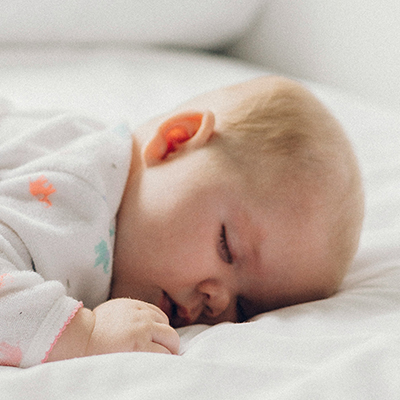Sleep Studies in Children
Understanding your child’s breathing and sleep during the night
A sleep study is a safe and painless overnight test used to check for sleep-related problems or breathing difficulties while your child is asleep. It helps us gather important information to guide diagnosis and treatment.
What Is a Sleep Study?
During a sleep study, we monitor your child while they sleep to assess how well they are breathing, how deeply they sleep, and how their body responds overnight. The test is non-invasive and takes place in a calm, comfortable setting. A parent or carer can usually stay with the child throughout the night.

Why Might a Sleep Study Be Needed?
Sleep studies may be recommended for several reasons, including:
- To check for obstructive sleep apnoea (OSA):
Some children snore and have pauses in their breathing during sleep. This may be due to the soft tissues of the throat collapsing, temporarily blocking the airway. A sleep study helps confirm the diagnosis and assess how severe it is. - To assess oxygen and carbon dioxide levels during sleep:
Children with conditions affecting the lungs, chest wall, spine, or muscles may not breathe deeply enough at night. This can result in lower oxygen levels and a build-up of carbon dioxide during sleep, even if breathing is normal when awake. - To monitor children using oxygen or ventilation support (e.g. CPAP or BiPAP):
Sleep studies help ensure these therapies are working correctly and that the settings are appropriate for your child’s needs.
Overnight Respiratory Sleep Studies
An overnight respiratory sleep study is most commonly performed to assess for obstructive sleep apnoea (OSA) or other forms of sleep-disordered breathing. These studies help identify whether your child’s breathing is disrupted, shallow, or paused during sleep.
Sleep studies can be carried out in two settings:
1. In-Hospital Sleep Studies
These provide detailed information and are conducted under the supervision of trained staff in a dedicated paediatric sleep facility.
2. Home Respiratory Polygraphy Studies
These studies are performed in the comfort of your child’s home. While they provide slightly less detailed information than in-hospital studies, they are often sufficient to diagnose sleep-disordered breathing accurately.
Home studies typically measure:
- Breathing effort
- Oxygen levels
- Heart rate
- Airflow through the nose
- Body position and movement
We provide all necessary equipment and clear instructions for families, and our team is available to support you throughout the process.
What Do We Measure During the Study?
Throughout the night, we may monitor:
- Oxygen levels – via a soft sensor placed on the finger or toe
- Carbon dioxide levels – using a small sensor pad on the skin (typically the arm)
- Heart rate and rhythm – through small adhesive stickers (ECG leads) on the chest
- Breathing patterns – with soft tubes placed under the nose
- Chest and abdominal movement – using gentle belts around the body
- Sleep quality and movement – monitored using video and sound recording
- Brain activity (EEG) – occasionally used in extended studies to assess sleep stages
The sensors do not hurt and are well tolerated by most children. Staff will explain each step and ensure your child is as comfortable as possible.
Located in London | Infants to young adults seen
Request a referral or book an appointment with Professor Gupta today.
